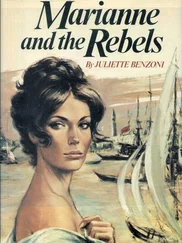The actor looked as if he were daydreaming and occasionally glanced away.
“It is all settled,” he told Tibor. “Havas is a friend and he knows you to be gentlemen. There is nothing in the conditions that obliges him…He won’t demand anything.”
Havas did not demand anything. The money, like all money in the last few months, drained invisibly away: they were having to save Béla with it. Amadé was embarrassed, since he too was in receipt of some. He kept quiet for now. He smiled. He could smile so stiffly while looking straight ahead that one would think he had a glass eye. His bluish jowls sat stolidly in the vent of his collar. His brow practically shone. It was like precious china. He smiled, a toothpick dangling from his lips, and looked fixedly into the distance with his glass eyes. The pawnbroker fitted a new cigar into the holder. They stared at each other, smiling icily. The actor gave an almost imperceptible shrug. They both smiled.
“Master Ernõ is right,” said the pawnbroker. “I am a fat pig. I have got used to it. What can I do about it? So I’m fat. Should I torture myself with the thought? I am the kind of fat man who is fat because he eats a lot. Amadé is the kind of fat man who eats practically nothing and yet is still fat. I’d die if I couldn’t eat properly. A fine, solid piece of roast pork, in a nice crispy roasted skin, accompanied by potatoes boiled with onions and some pickled gherkins: it’s a pleasure biting at the crisp skin. That’s the stuff for me. And lángos with cabbage. This is my fate in life. You should try to see me as the helpless creature of fate.”
Everyone looked at him and Ábel noted the pained courteous smile on Tibor’s face. It was this smile that he particularly liked about him. There was something distracted and troubled about it, a kind of noblesse oblige. Tibor was trying to smile indulgently at Havas’s corpulence. Béla was giving him a fish-eyed look as if he had never seen him before. Ernõ was screwing up his nose.
“Yes, just imagine it…,” he said with a shudder of disgust.
“You should see me undressed,” Havas continued, calm and solemn. He drew loudly on his cigar holder. He nodded. “Yes, terrible. And I should also confess that I wear a girdle. Not a full girdle, just a thing that goes round my stomach. When I take it off my belly simply drops.”
He surveyed the assembled company. The actor gave a croak.
“Are you staying with us, Emil?”
The pawnbroker rose slowly to his feet. He put on his hat so it was tipped back over his head. His brow was glistening with sweat.
“Thank you for the kind invitation,” he said quietly. “I will not remain with the gentlemen tonight.”
Tibor made a sudden movement.
“I would like to speak to you tomorrow, Mr. Havas.”
The pawnbroker’s eyes disappeared under his swollen lids.
“At your service, Mr. Prockauer.”
“Not at your shop.”
“Just as you please,” said Havas. “Two o’clock at my apartment then. At your service.” He looked around. “Perhaps Master Ábel would like to come too,” he added.
Ábel blushed. Tibor turned away. “Yes, I’ll come too,” said Ábel quickly.
The pawnbroker nodded as if he thought this the most natural thing. He did not shake hands with anyone. Once he had gone Tibor sat back down and rubbed his eyes.
“And now we shall have the most splendid party,” said the actor.
THE TOWN DOZES AMONG MOUNTAINS, PRESERVEDin cotton wool, its three towers pointing indifferently at the sky. There is electricity and running water in its houses. A train in the station is blowing its whistle. Three mountain peaks surround the town: inside the rock, some copper and a little magnesite. A river rushes through, a brisk mountain stream, the air above it sharp and hard and delivered into the heart of town while, in the opposite direction, the dense forest swarms up the mountainside. The middle peak retains its cap of snow for a considerable time: the locals are proud of the alpine backdrop it so picturesquely provides. A narrow-gauge train carries passengers from the railway station to the main square. The houses too are narrow and long, tending to shoulder up against each other because the town was once a fort and people have lived here for generations. The seminary is yellow: mornings and evenings you can see the monks in their brown robes, their rope cords, and sandals carrying their rosaries as they make their way to church for their devotions. The bishop’s palace has a wide wrought-iron balcony, its spikes complete with baroque ornamentation, the flag-holder above them. The bishop walks out with his secretary every afternoon at three, the secretary’s hard hat glimmering with silk and a tassel dangling behind from the hat’s rim. The bishop makes a point of grandly greeting everyone who greets him. He rises early because he is an old man who sleeps badly; by dawn he is standing at his high desk forming tiny pearl-like letters. Others are measuring out wine in the cellars of the town hall, the wine stone cold. The vaults of the cellars are made of heavy slate: a century ago it was Poles who were drinking the wine here, the smoky marks of their torches still visible on the walls. Damp keg smells, the delicate, dense smell of alcohol and stearin candles. A bread ticket. Closing time. An endless sequence of barely noticed trains passes through town. One rumbles past now: it measures at least two or three hundred meters but the platform guard doesn’t even look up and the trains roll on carrying holidaymakers and the wounded, for here is the resort and here is the station. Some open the doors of their cars for an hour or so and the smell of carbolic and iodine oozes out to an enormous silence. The smell wafts downtown but is particularly acrid near the station. Big buckets of lime wait on the platform, for it sometimes happens that certain passengers have to be carried from the train and need to be sprinkled with it. But this is the fourth year of hostilities and the town has gotten used to it, especially those people whose job it is to sprinkle lime. They are very quiet now. There are no longer attendants in snow-white garments with red crosses on their armbands waiting at the resort station: the lady volunteers of the town are gone along with their shining uniforms that looked as crisp as those worn by wax nurse dolls displayed in the pharmaceutical department of the big store, to be replaced by, at most, two sanitary workers whose uniforms do not shine and are not crisp, and who grunt hey-upp when called upon to act as stretcher bearers. The war is a long way from here. There is only a kind of ash or soot, the kind that is carried from a distant fire and falls some distance from its source. The war will never reach as far as this. There were only telegrams at the beginning, and then the trains that passed through town. An elementary school had to be turned into a hospital as did half the monastery. A number of people were awarded distinctions for their services to the nation. The stationer’s window still displays the maps of Russia and France, but the nimble, plumpish old proprietor no longer nips out each morning to pin tiny flags on them to mark the victories of the Central Powers with his own fair hands; in fact he tends not to put pins anywhere and has lost a little weight for no one pays attention to the maps now. The town has become accustomed to the war. No one talks about it, rushes out for special editions of the local paper, or bothers to pick up the national press at the station. The town has become accustomed to the war in the way one can get used to old age, the thought of death, to anything at all. The roads are a little neglected, a lot of people go about in mourning dress, some familiar faces have disappeared, but you can’t deny that a few sprigs of well-being are blossoming in the ruins. The war is a distant hourglass, sand mixed with human remains, but this morning you could see the treasurer in his gray morning suit and yellow elastic-sided boots in the public gardens, girls who were children only four years ago but are now slender young ladies strolling down the promenade, girls to whom men turn their minds despite the war. It is a small, clean, and colorful town, a toy town in its gift box. There is a lot of litter everywhere now, houses are not repaired, old notices in groceries inform the public that salted fish are expected, but that’s about all. Red, blue, and yellow advertisements on street columns. And, here too, those who are doing well can find opportunities for helping themselves. Every afternoon the town clerk may be seen ambling through Szent János Square with his vizsla hound, heading for the embankment to play fetch. The movie house is pretty popular and the theater is almost always full when they perform operetta. Amadé Volpay is the comic. One day Ábel will be sitting in a big city and will pronounce the words “world war,” but recall only Tibor and Amadé, and a certain anxiety and curiosity. One’s hometown is not merely the church tower or a square with a fountain though, it is flourishing trade and industry, it is the doorway where some thought first crossed your mind, a bench on which you used to sit pondering something incomprehensible, a moment in the shower where you seemed dizzily to remember fragments of an earlier existence, a neatly polished pebble found in an old drawer that you can no longer think why you stored there, the scripture master’s hat, brown with an unbecoming patch, the cold sweat before a history lesson, strange games whose rules no one understood and you were too embarrassed to explain, a lie the consequences of which gave you nightmares for the rest of your life, an object in someone’s hand, a voice you hear at night through an open window and cannot forget, the way a room is lit, two tassels under a pair of curtains. War is not precisely what we tend to think about it. Ábel will not be telling tales about it to his grandchildren as they sit on his knee, because in him too the war awakens memories of fear and anxiety, but the fear is in respect of Tibor and the anxiety is focused on Amadé. The population numbers sixty thousand. There are tennis courts. The town happens to be asleep right now, the mayor has problems with his heart and lies spread-eagled in his bed, his dentures in the glass of water beside him; in musty rooms omnipotent fathers sleep in nightshirts beside their wives. In the woods above town animals are waking. The actor is saying: Sad to say, you don’t know real vodka. The real pure stuff turns everything you see a blue color.
Читать дальше












